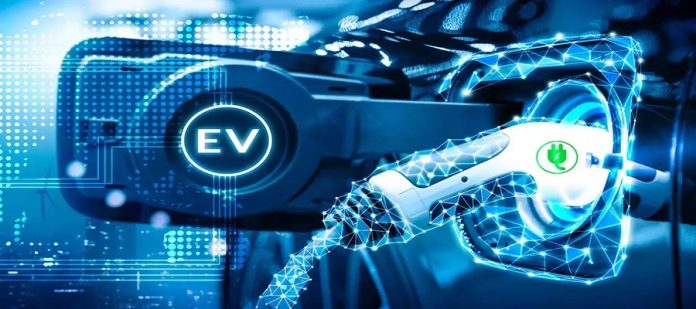India is presently witnessing a substantial upswing in the electric vehicle (EV) sector, with forecasts indicating a Compound Annual Growth Rate (CAGR) of 49 per cent for domestic electric two-wheeler (EV) sales until 2030. In congruence with this burgeoning market, the Indian government has established ambitious objectives, with the aspiration of achieving a 70 per cent electrification rate for commercial vehicles and a 30 per cent electrification rate for private vehicles by the close of 2030. To facilitate the realization of these targets, the government has instituted a range of policies, incentives, and regulations aimed at promoting EV adoption and facilitating a transition towards environmentally-friendly transportation solutions.
Furthermore, India has established a lofty objective of deploying 500 gigawatts (GW) of renewable energy capacity by 2030, of which 41.5 GW is designated for implementing battery energy storage systems to enhance grid integration. The government has also introduced incentives to foster the development of 4,000 megawatt-hours of battery storage systems via various projects and tender processes, with a dedicated investment exceeding $450 million.
This news article delves into the pivotal role of lithium-ion cell technology within India’s electrification journey, emphasizing the crucial need for domestic production capabilities to ensure the nation’s sustainable and self-reliant energy future. It further delves into the current hurdles faced by the industry, the advantages of localizing lithium-ion cell production, and its integral role in shaping India’s aspiration for energy self-sufficiency.
Challenges in Lithium-ion Cell Industry
Despite India’s remarkable strides in the electric vehicle and renewable energy sectors, there remains a substantial dependence on imported lithium-ion cells. In the preceding year, India imported 2 gigawatt-hours of lithium-ion cells, constituting a mere 0.5 per cent of the global production. This heavy reliance on imports gives rise to various challenges.
Price Management: By manufacturing its own lithium-ion cells, India attains enhanced control over pricing, whereas procuring cells from the open market exposes the country to volatile price shifts dictated solely by vendors.
Tailored Solutions: Domestic lithium-ion cell production facilitates customization to suit specific requirements. Market-available lithium-ion cells are frequently optimized for North American climate conditions and driving patterns. In contrast, India encounters diverse temperature ranges and driving conditions, making the customization of cells to local needs imperative.
Promoting Innovation and Enhancement: Through domestic production, India can accelerate innovation and advancement in lithium-ion cell technology. Relying on global suppliers hampers the speed of technological progress.
Ensuring Supply Chain Resilience: Solely depending on international suppliers exposes the supply chain to vulnerabilities. Domestic production guarantees a consistent supply of top-notch cells, lessening reliance on external factors.
Localization Efforts: As India sets ambitious targets for electric vehicles and stationary energy storage, it must prioritize the localization of its battery production. Given that lithium-ion cells comprise 80 per cent of a battery, their domestic manufacturing becomes paramount in realizing energy self-sufficiency.
Key Advantages of Producing Lithium-ion Cells Domestically
- Trade Deficit Reduction: Domestic production diminishes India’s dependence on neighbouring nations for lithium-ion cells, thereby reducing trade imbalances.
- Self-Sufficiency: Domestic cell production promotes self-reliance in the energy sector, decreasing susceptibility to international supply disruptions.
- Talent Attraction: The development of lithium-ion cell technology draws engineering talent, mitigating the issue of brain drain as skilled professionals discover opportunities within India.
- Wealth Generation: Domestic production fosters a thriving ecosystem, including material science companies, leading to the generation of wealth within the nation.
- Economic Expansion: A robust domestic supply chain contributes to economic prosperity, capital retention, and job creation, particularly in the swiftly growing electric vehicle and energy storage sectors.
India’s quest for energy self-sufficiency, reduced trade imbalances, and economic expansion hinges on the domestic development and production of lithium-ion cells. These cells serve as the core components of electric vehicles and energy storage systems. By assuming control over this pivotal element, India stands poised to achieve its ambitious goals in electric vehicles and renewable energy and exemplify a cleaner, more intelligent, and sustainable approach to crafting battery solutions for a decarbonized future. The production of lithium-ion cells within the country is the linchpin of India’s energy transformation, offering the promise of a more promising and prosperous future.
In a world increasingly valuing sustainability and energy autonomy, India’s investment in domestic lithium-ion cell technology is a strategic manoeuvre that aligns with global trends and positions the nation as a frontrunner in the shift toward clean energy and electric mobility. This endeavour transcends mere fulfilment of domestic requirements; it aims to establish a resilient ecosystem that nurtures innovation, talent, and economic advancement. The journey toward energy self-reliance commences with lithium-ion cells, and India stands poised to take a significant stride forward in this pivotal undertaking.










